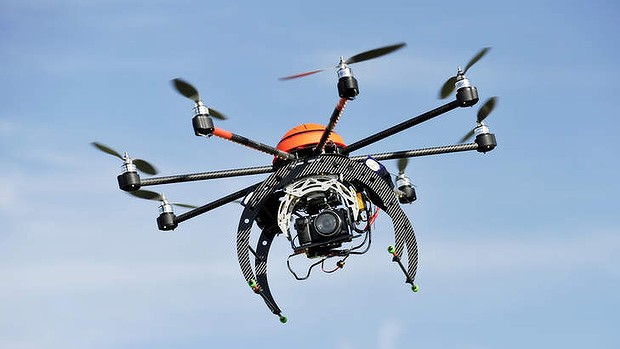
The widespread use of drones is opening many opportunities, whether that is in the delivery of retail parcels, the protection of secure sites, or the location of missing persons in remote areas. However, the disruption at Gatwick Airport just before Christmas 2018 has also demonstrated how drones can be used maliciously, to great effect. After several days the police and airport authorities were able to end the drone intrusions, but it did demonstrate the need for effective counter-drone technology at key sites. While there are currently some obstacles preventing their wide-spread deployment there is a wide range of counter-drone technologies on offer from British industry.
Counter-drone technology comes in two broad categories: detect, track and identify (DTI) and effectors. DTI generally makes use of multiple sensors including radio frequency (RF) detectors, drone-specific radars, and electro-optical infrared systems (EOIR). Effectors fall into two broad categories: kinetic and electronic. Kinetic effectors include something as simple as a shotgun, to a shoulder-mounted net launcher, or a drone configured with its own net launcher. Electronic effectors can include jamming systems that interfere with GPS navigation systems, or control links operated over commercial RF bands, amongst other options.
There are practical limitations to many of these systems – for instance, the police at Gatwick could not justify shooting down the drones, for fear of bullets dropping on bystanders’ miles away – but another issue preventing airports, and many other key sites such as power plants, sports stadiums and prisons, from deploying counter-drone technologies is legal in nature. Under the Air Navigation Order, it is illegal to interfere with a flying aircraft in the UK, which drones are currently considered to be. It is also illegal to jam commercial RF bands and GPS under the Wireless Telegraph Act. Finally, powers to deter and intercept drones are primarily held by the police in the UK, so it would not be legal in any case for a trained security professional at Gatwick Airport, for instance, to activate an electronic effector against a drone instruction.
The Government has made proposals to extend exclusion zones for drone flights near airports, to strengthen police powers to deal with illegal drone usage, and to accelerate the evaluation of counter-drone technologies for subsequent deployment. ADS contributed to the consultation on these proposals and will continue to support a collaborative dialogue between industry and Government on counter-drone technologies, particularly through contributing to the UK’s current Aviation 2050 green paper.
Drones present huge opportunities to the UK’s economy and society, but they also present significant challenges if used nefariously. Drones are a complex problem which will require complex solutions, and industry groups such as the Drone Platforms and Counter Drone (DPAC) Special Interest Group, which ADS is proud to run, are well placed to assist.
In the fourth episode of Winging It – An ADS Podcast, Nicholas Altham (Aerospace Policy Advisor ADS) and Mark Lupton (Nexus Nine) discussed the recent disruption at Gatwick Airport in more detail. If you would like to have a listen, please visit here.





